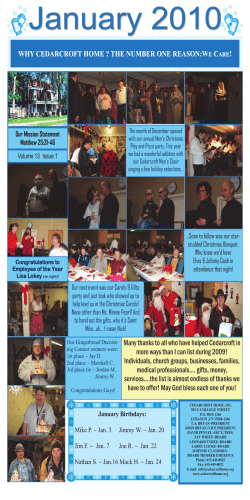
Maha Yahya | Carnegie Middle East Center, Lebanon
THE GOVERNANCE OF RELIGIOUS DIVERSITY MORE OR LESS SECULARISM? 10-12 June 2015 SESSION: THE GOVERNANCE OF RELIGIOUS PLURALITY IN THE MIDDLE EAST CITIZEN SECT: RELIGION AS A REIFIED ORDER FOR MANAGING LEBANON’S DIVERSITY Maha Yahya | Carnegie Middle East Center, Lebanon The predicaments of state legitimacy and the multi-faceted crisis sweeping through Arab countries have sent politicians and political actors scurrying for alternatives mechanisms for the national governance of diverse societies. In a number of Arab counties, citizens have turned to ethnic or sectarian communities perceived as existential safety nets from the instability gripping their countries. Yet when asked, these same citizens continue to aspire for national unity within the territorial boundaries of their current states.1 In this context, Lebanon’s consociational model of democracy, once considered a trigger for descent into civil conflict is now held up as a singular approach to the management of ethnic and religious diversity; an approach to be emulated across the region. This paper argues that Lebanon’s model, based on the supposed neutrality (and secularism) of the state towards its diverse communities, reifies religion making it the most prominent public attribute of Lebanon’s citizens. This contradiction between national identity and sectarian belonging, apparent in competing articles in Lebanon’s constitution, confessionalizes the relationship of citizens to their state and undermines their equality before the law. In time, and without the proper checks and balances, the selective application of this model has paralyzed government decision-making and facilitated the gradual takeover of religion over the “secular” state. 1 Maha Yahya, ongoing research into Faces and Perceptions of Injustice
© Copyright 2026











